Vocabulary enhancement Normal Elementary Phonics Worksheets for Ages 5-8
6 filtered results
-
From - To
Unlock your child's potential with our Vocabulary Enhancement Normal Elementary Phonics Worksheets, specifically designed for ages 5-8. These interactive and engaging resources help young learners build a strong foundation in phonics, improve their spelling, and expand their vocabulary. Tailored to meet the unique needs of early grade students, our worksheets are perfect for fostering literacy skills both in the classroom and at home. With colorful, fun activities, children stay motivated and excited to learn, making their educational journey both enjoyable and effective. Elevate your child's reading skills and give them the confidence to excel with our expert-designed printable worksheets.
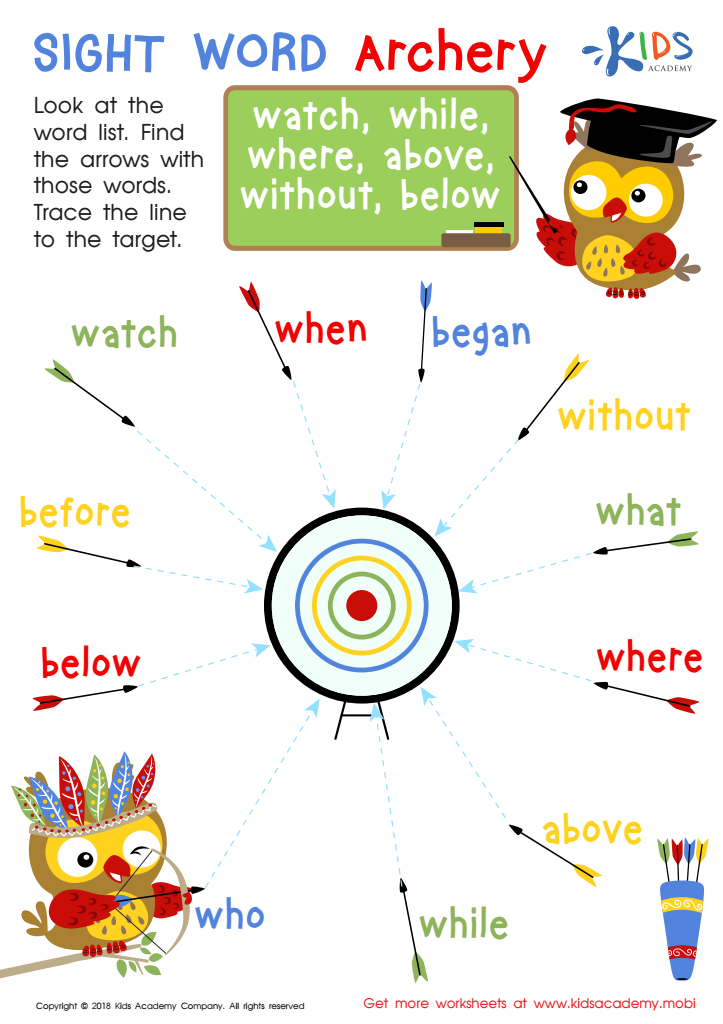

Sight Word Archery Worksheet
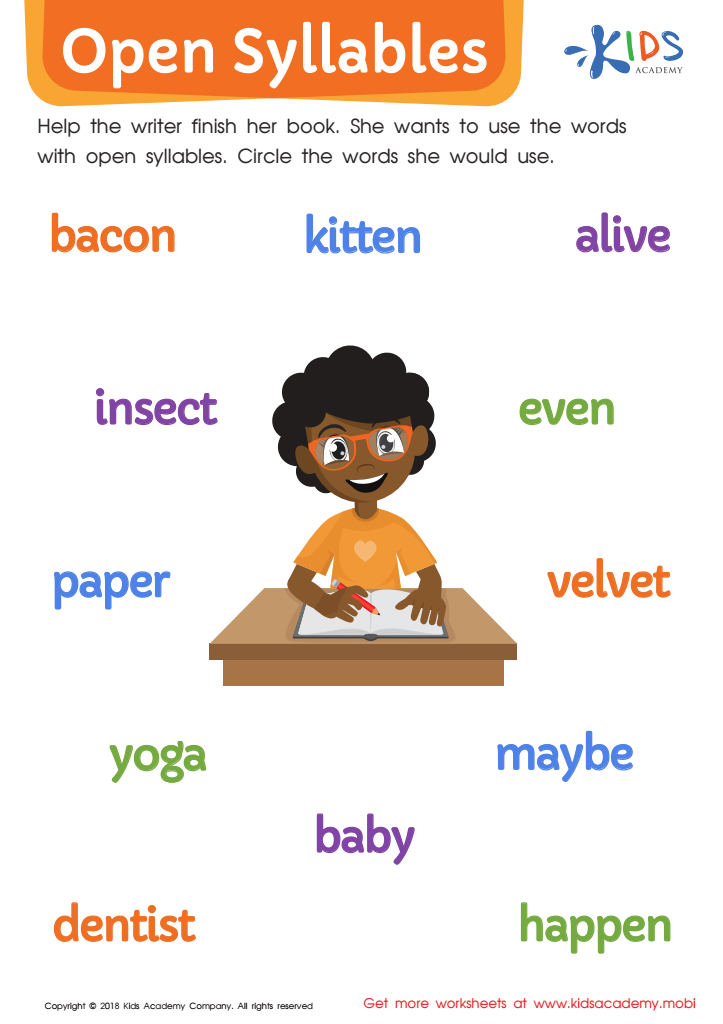

Open Syllables Worksheet
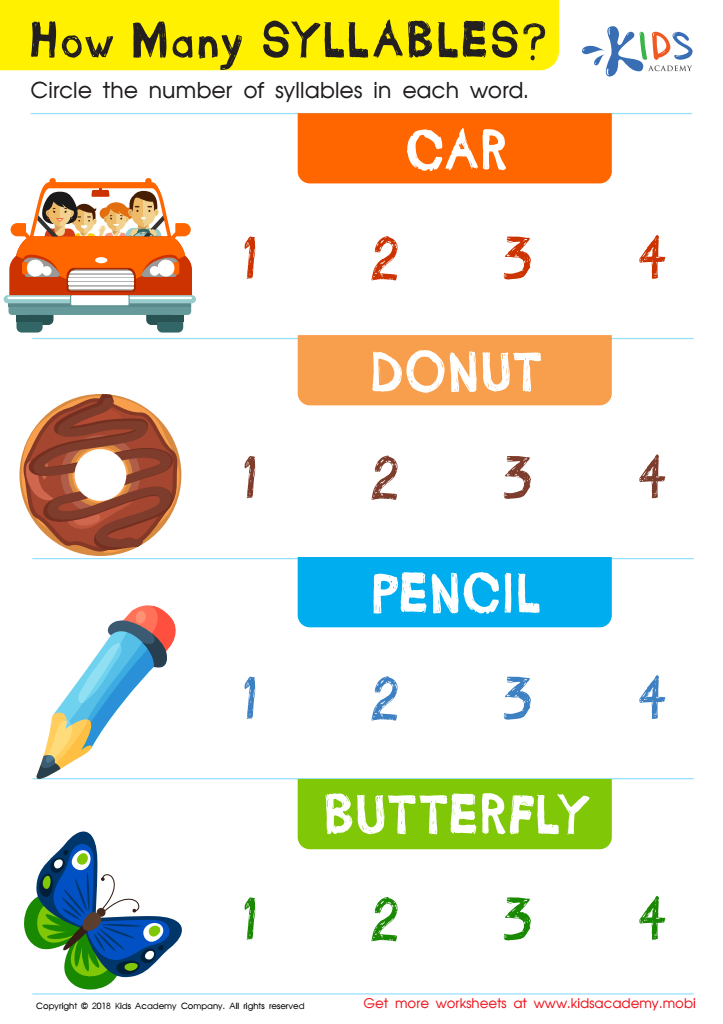

How Many Syllables? Worksheet
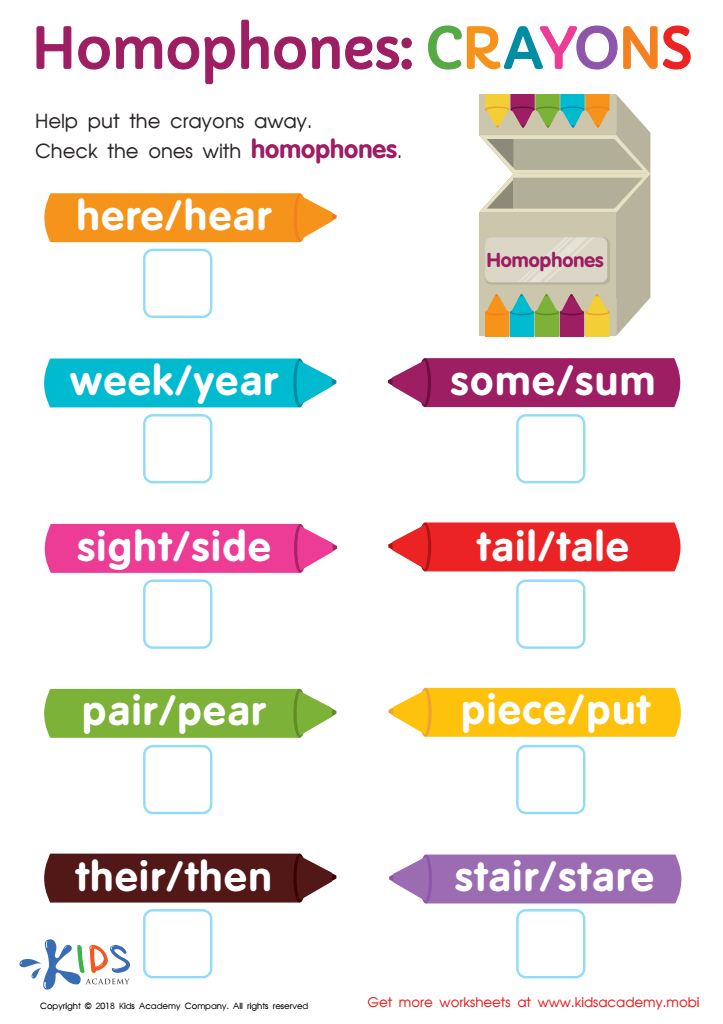

Homophones: Crayons Worksheet
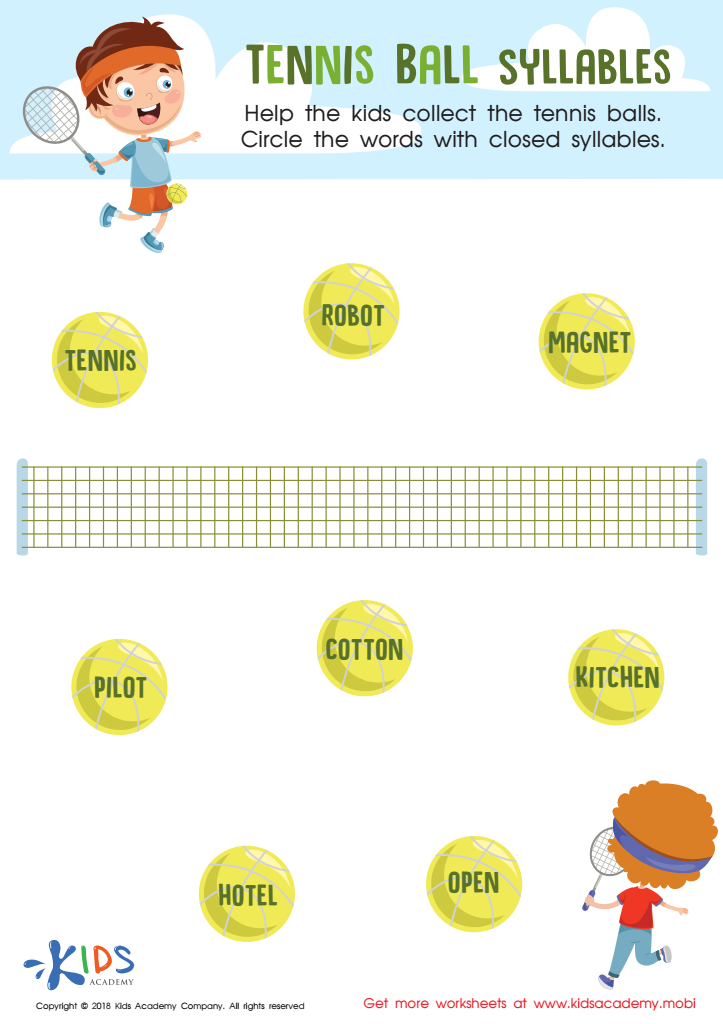

Tennis Ball Syllables Worksheet
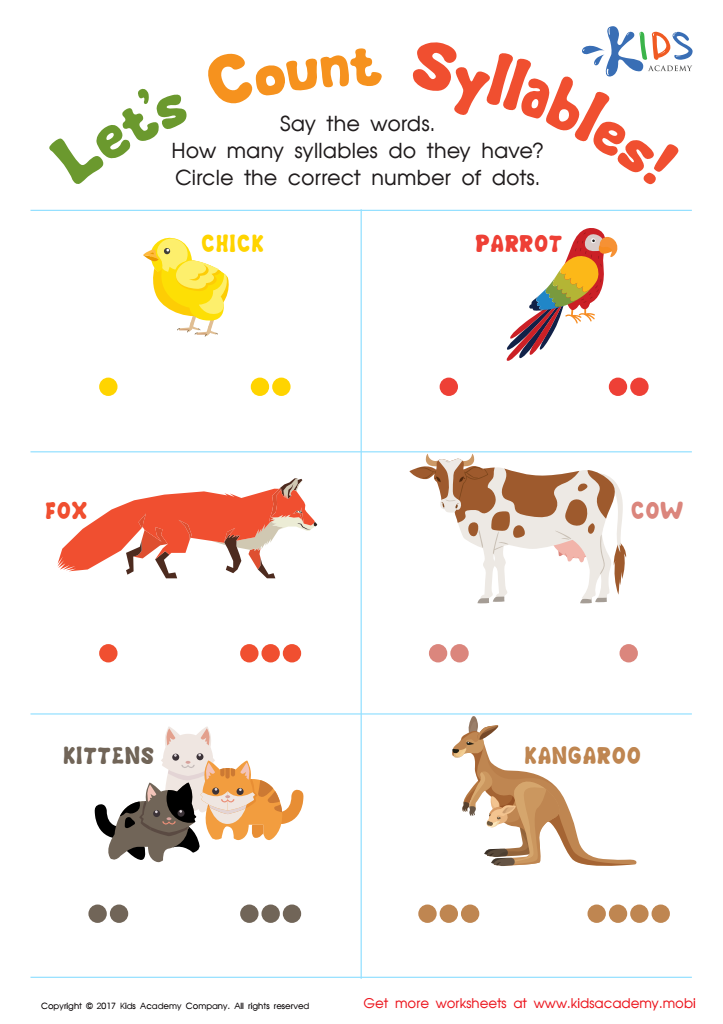

Lets Count Syllables Worksheet
Vocabulary enhancement and elementary phonics for ages 5-8 serve as foundational pillars in early literacy development, critical to lifelong learning success. During these formative years, children’s brains are highly receptive to language acquisition. Building a robust vocabulary not only improves their understanding and ability to express themselves but also enhances their cognitive development. Doing so at an early age boosts their self-esteem and confidence in communicating both verbally and in written form.
Learning phonics, which involves the relationship between sounds and their spelling, is crucial in cultivating reading proficiency. It enables young learners to decode new words, greatly improving their reading fluency and comprehension. This early literacy skill allows children to progress from "learning to read" to "reading to learn," thus setting the stage for academic success across subjects.
Parents and teachers play significant roles in this vocabulary and phonics enhancement. They can create rich, word-filled environments and provide targeted, engaging phonics instruction. Interactive activities such as reading stories aloud, playing word games, and encouraging expressive conversations can make learning fun and effective. Investment in these early literacy components ensures children develop strong reading skills, supporting their educational journey and opening doors to a world of knowledge and opportunities.

 Assign to My Students
Assign to My Students










